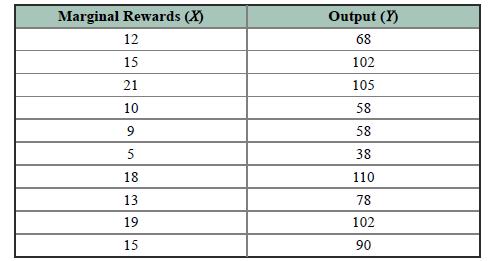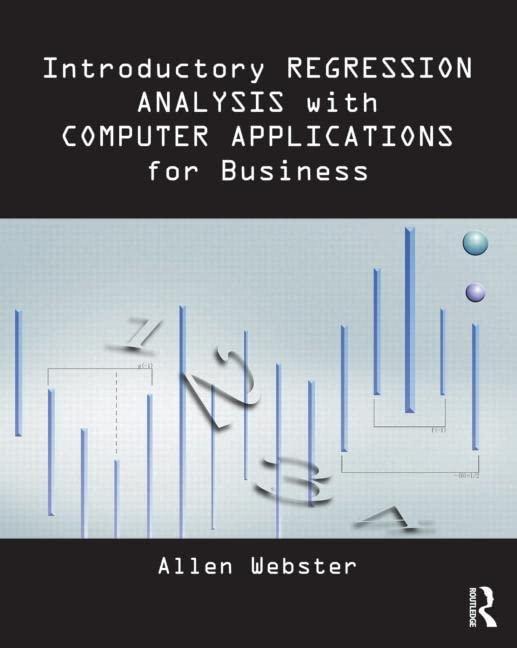Professor Phil Grant at Husson University in Bangor, Maine has spent much of his professional life studying
Question:
Professor Phil Grant at Husson University in Bangor, Maine has spent much of his professional life studying the levels and determinants of employee motivation and satisfaction. In his compelling work, The Mathematics of Human Motivation, he examines the Law of Escalating Marginal Sacrifice. An empirical application of his principle might compare a worker's perceived marginal rewards with his or her professed output. Use the contrived data seen opposite to answer the questions posed below.
The model reports as Ô =15.469 + 4.776.MR. Other preliminary statistics are found to be
Set the level of Reward at 12.
a. Compute and interpret the 95% confidence interval for the conditional mean.
b. The regional director for the firm under study is considering the promotion of a certain employee who has shown impressive managerial attributes. The director decides that if the employee's output is near 80 the promotion will be granted. Does a 95%
interval estimate for this single employee suggest the promotion should be forthcoming? Explain your answer.
c. At an alpha-value of 1%, does it appear Reward is a statistically significant explanatory variable for Output?
d. Calculate the p-value associated with the hypothesis test in part C.
How does your finding support or deny the result of your hypothesis test?
e. What portion of the change in Output is explained by changes in Reward?
Step by Step Answer:

Introductory Regression Analysis With Computer Application For Business And Economics
ISBN: 9780415899338
1st Edition
Authors: Allen Webster





